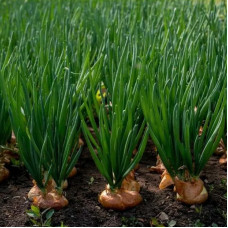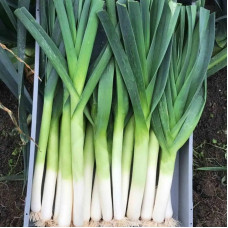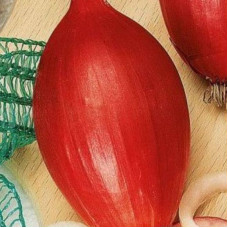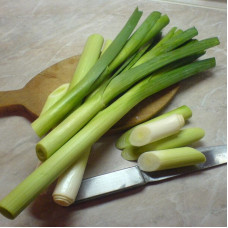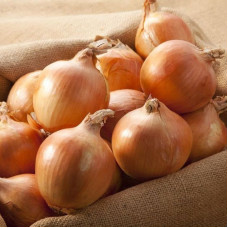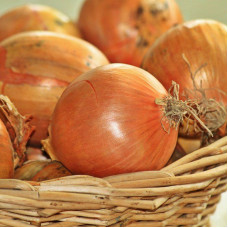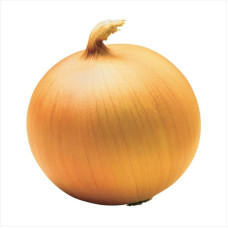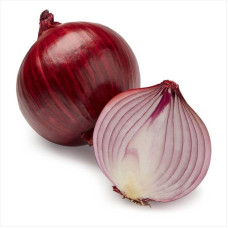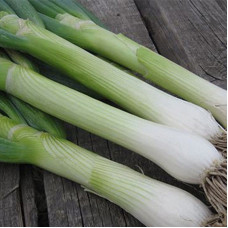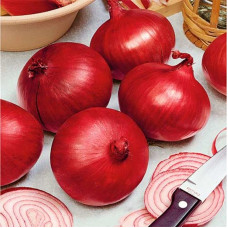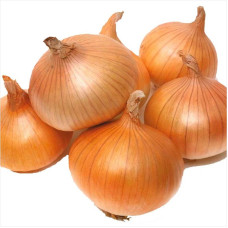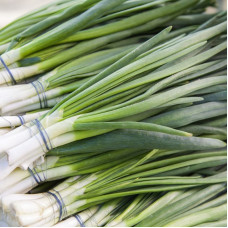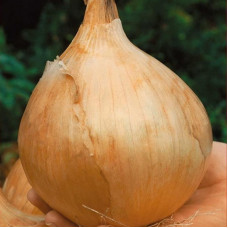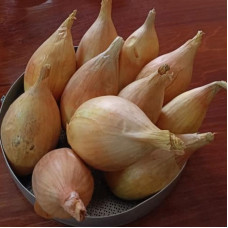In stock
Product Code: 15938
Onion «Ali Baba» - an early ripening variety for home and commercial cultivation. Onion seeds are planted in early spring and in 1 season large, juicy salad-type bulbs are collected - mildly pungent in taste, juicy, and high in sugars. These bulbs ar..
$0.99
In stock
Product Code: 15829
Onion «Spring» - is an early ripening variety. Grows in one place for 3-4 years. The leaves are highly branched, fist-shaped, hollow inside, grow 20-45 centimeters long and 1-1.5 centimeters in diameter. In early spring, the plant produces green shoo..
$0.99
In stock
Product Code: 244
Onion «Wales» - this is an early ripening variety. Grows in one place for at least 3-4 years. The leaves are strongly branched, fist-shaped, hollow inside, 20-45 cm long, 1-1.5 cm in diameter.
During the growing season, the leaves are cut off..
$0.99
In stock
Product Code: 13774
Shallot «Forty teeth» - a perennial plant that produces 5-7 daughter bulbs and fragrant greenery 35-45cm high. The bulbs are oval in shape, weighing 20-40g, yellow in color with a light lilac tint. Greenery is cut every 25-30 days; the bulbs are coll..
$0.99
In stock
Product Code: 10
Leek «Autumn Giant» - this is a late ripening variety. The growing season from germination to harvest is 140-190 days. Produces long, flat, green leaves and a thickened stem with a faint bulb.
The stem is large, 20-30 cm long, 5-7 cm in diameter, ..
$0.99
In stock
Product Code: 242
Onion «White Queen» - this is a mid-season variety. The growing season from germination to mass lodging of leaves is 90-110 days. The bulb is round, large, weighing 150-200 grams, semi-sharp taste, excellent taste. The color of the scales is snow-whi..
$0.99
In stock
Product Code: 2104
Onion «Red Baron» - this is a mid-season variety. The growing season from germination to mass lodging of leaves is 95-105 days. The bulb is round-flat, medium in size, weighing 80-120 grams, with a pleasant semi-sharp taste. The color of dry scales i..
$0.99
In stock
Product Code: 1133
Leek «Karantansky» - this is a mid-late variety. The growing season from germination to harvesting is 120-170 days. Forms long, wide, dark green leaves with a waxy coating and a thickened stem 20-25 cm high and 4-6 cm in diameter.
The weight of on..
$0.99
In stock
Product Code: 1140
Onion «Tropic» - this is a mid-early variety. The growing season from germination to lodging of leaves is 85-100 days. The bulbs are elongated oval in shape, medium in size, weighing 90-130 grams, medium-sharp taste, pink-red color.
The variety is..
$0.99
In stock
Product Code: 22
Onion seeds «Brunswick» - this is a mid-early variety. The growing season from germination to mass lodging of leaves is 90-100 days. The bulb is round, large, weighing 140-180 grams, semi-sharp taste, good taste.
The color of the scales is red. Th..
$0.99
In stock
Product Code: 11794
Leek «Good fellow» - high-yielding mid-season variety. The period from germination to harvest is 150-160 days. The plant is powerful, 80-100 cm high, the mass of the productive part is 150-200 grams. Leg length 25-30 cm, Ø3-4.5 cm, weight 120-150 gra..
$0.99
In stock
Product Code: 15130
Bulb onion «Stryhunivskyy» - this is a type of spicy onion. «Stryhunivskyy» is a very productive variety; excellent storage can also be attributed to the features. Mid-season. The mass of the bulb reaches 60 - 100 grams. It can be grown in annual and..
$0.99
In stock
Product Code: 11938
Leek «American flag» - one of the best varieties of leek, suitable for home, garden and market. The variety is medium early, ripening takes 170-180 days. A very productive variety. Tall with dark green leaves. The white part reaches 22-25 cm in heigh..
$0.99
In stock
Product Code: 15317
Bulb onion «Galician» - mid-season variety, vegetation period 110-112 days. The bulb is round, weighing up to 250 grams. The color of dry scales is yellow, juicy scales are white, the taste is spicy. The dry matter content is 18.6%.
Universal vari..
$0.99
In stock
Product Code: 12001
Bulb onion «Donetsk golden» - popular, mid-season (100-107 days), high-yielding variety. Yield 3-4 kg per sq. m. Grown in an annual culture from seeds. The bulb is dense, rounded flat. Dry scales are golden yellow. Bulb weight 70-90 grams.
The tas..
$0.99
In stock
Product Code: 12302
Bulb onion «Glow» - has leaves of dark green color with moderate intensity. The shape of the bulb is rounded, the average height is 6.4 cm, the diameter is 5.6 cm. The color of dry bulbs is red, the shade of fresh bulbs is reddish. The variety is of ..
$0.99
In stock
Product Code: 11939
Bunching onion «Japanese» - vegetation period 30-40 days from germination to technological maturity. Onion batun has a high cold resistance. The leaves are long, up to 70 cm, dark green in color with a white stem. Designed for multiple cut (every 15-..
$0.99
In stock
Product Code: 15131
Onion «Ruby»
This is a delicious, early ripening, high-yielding onion variety. To technical ripeness - 72-85 days. The bulb is semi-sharp, rounded, single-celled, weighing 60-80 grams. Dry scales are pink-violet, juicy, white with a pink epidermis..
$0.99
In stock
Product Code: 8937
Bulb onion «Tkachenkovskyi» - sharp, versatile onion variety, high yield and keeping quality (up to 90%). Mid-season. Vegetation period 96-108 days. The bulbs are round and round-oval, very dense, weighing 110-150 grams. Dry scales are yellow, juicy ..
$0.99
In stock
Product Code: 11818
Bulb onion «Varangian» - a versatile, spicy variety of onion. Vegetation period 106-110 days. Keeping quality: 7-8 months. The shape of the bulbs is round and round-flat, the color of the integumentary scales is light brown. The color of the juicy sc..
$0.99
In stock
Product Code: 8962
Onion batun «Pierrot» - is a perennial, highly branched plant. Onions grow in one place for up to 5 years. Productivity is good. Green feathers have good taste. Relatively resistant to peronosporosis.
Intended for fresh consumption and cooking...
$0.99
In stock
Product Code: 15132
Shallot
Biennial plant. A shallot bulb is made up of many cloves, just like garlic. It is smaller than that of onions, but ripens earlier and is stored excellently. Shallots are often grown for their mild, tender, tasty greens.
Spring and autum..
$0.99
In stock
Product Code: 13115
Bulb onion «Alice Craig» - an annual variety of giant onion. Vegetation period 120-140 days. It is grown by seedling or sowing in the ground. One of the best salad varieties with a delicate sweetish taste and almost no characteristic onion smell.
..
$0.99
In stock
Product Code: 15316
Bulb onion «Gull» - mid-season variety, growing season 110-118 days. The bulb is elongated-rounded, weighing up to 250 grams. The color of dry scales is yellow, juicy scales are white, the taste is spicy. The dry matter content is 15.75%.
Universa..
$0.99
Onion is a valuable plant that saves from various diseases, disinfects the body, makes dishes more elegant, and also gives excellent and unusual onion seeds used everywhere . The herbaceous plant belongs to the genus of biennial and perennial in the onion subfamily. When ripe, they form a large flattened-spherical bulb with red, white and purple shells. The seeds of the plant are angular and round. The most flowering and fruiting of the plant falls on August and September.
Onion seed classification
In general, all varieties grow well in warm regions. Summer residents distinguish several types - some are designed for decoration and give seeds for three years, while others are usable. To navigate the varieties of plants, you need to systematize knowledge. The following main types are distinguished:
- Green. Almost every species has useful properties, and most of them are found in greenery. Many people who do not have a summer cottage grow onion seeds at home. Growing a vegetable on a windowsill is also a great option for winter time. Simply put the bulb in water and after a couple of weeks you can cut off large green stems.
- Batun. In this variety, it is the greens sprouting from the bulb that are valued. It belongs to winter-hardy varieties, grown both as an annual and as a perennial plant. In one place it can grow up to 5 years.
- Shallot. Outwardly similar to the onion variety. It is a biennial plant and is an excellent example for growing green feathers with a delicate and sweet taste. In the first year, small nests with seeds appear.
- Scented. It is characterized by flat leaves and has a sharp garlic-onion aroma, rich in vitamins and phytoncidal properties. For 2-3 years of cultivation, small flowers with honey-bearing properties are formed, and therefore it has a pleasant smell. Winter resistant. Can grow in one place up to 10 years.
- Leek. At first glance, the plant resembles garlic, especially in the upper part, but you can distinguish them by the stem, as the leek is thicker and the taste of these plants is different. It is recommended to add to salads, liquid dishes. It is advisable to eat while the stems are young and full of vitamins, then they become tough.
- Onion. It can be used at different stages of growth. They come in different flavors - sweet, slightly spicy, semi-sharp and spicy. It is winter tolerant and a great addition to any meal.
Also, varieties of onion seeds can also include chives and multi-tiered. The first type is a trip to the batun and is also a perennial plant with good greenery. It grows well in one place for up to three years, then it is advisable to transplant to another. Its leaves are rather small, tubular and subulate. It has a mild flavor and is often used in cooking. But the multi-tiered one is considered the most vitamin variety.
It has phytoncidal properties. It reproduces not by seeds, but by small air bulbs. Since the plant is multi-tiered, these bulbs are just formed at the top of the stem. In one season, a summer resident can collect up to four such tiers. When it is best to plant each of these species depends entirely on the variety and its relationship to the cold.
Benefits and harms
Many people, aware of the positive properties of onions, are wondering how to grow them in the garden or at home. In fact, there is nothing difficult in this, just having seeds or a bulb and a little patience is enough. After receiving the green stems, you can use it. It is useful for people with vascular sclerosis, articular rheumatism, hypertension, impotence, bronchitis or influenza. Often used to restore vision.
It also helps to deal with worms. It is recommended to use for a runny nose, adenoids, otitis, sclerosis of the joints of the brain, wounds and to restore the health of the hair. Their spectrum of action is very large and it all depends on how and where to apply them.
The benefits of onion seeds are different, depending on what to do with it. From the plant, you can make decoctions, tinctures, syrups and much more. However, behind all the positive aspects, there are several contraindications. It is undesirable to use for people with a high level of hydrochloric acid in the stomach, it provokes asthma attacks, a large amount of the plant also negatively affects the cardiovascular system.
It also helps to deal with worms. It is recommended to use for a runny nose, adenoids, otitis, sclerosis of the joints of the brain, wounds and to restore the health of the hair. Their spectrum of action is very large and it all depends on how and where to apply them.
The benefits of onion seeds are different, depending on what to do with it. From the plant, you can make decoctions, tinctures, syrups and much more. However, behind all the positive aspects, there are several contraindications. It is undesirable to use for people with a high level of hydrochloric acid in the stomach, it provokes asthma attacks, a large amount of the plant also negatively affects the cardiovascular system.




